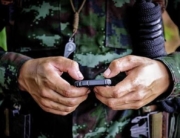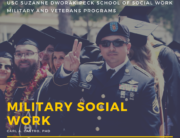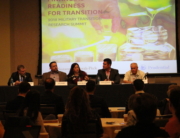Carl Castro, associate professor and director of the Center for Innovation and Research on Veterans & Military Families, participated in a suicide prevention podcast from the VA’s Rocky Mountain Mental Illness Research, Education and Clinical Center. In the 30-minute podcast, Castro discussed his work in this field, including a recent journal article outlining when a veteran might be more prone to suicide, a first step in more effective prevention efforts.
In the article, authors Castro and Sara Kintzle, research assistant professor, found that veterans are more likely to take their own lives when they feel they have become a burden to their family, friends and community, and are socially isolated with little to no meaningful personal connections. They also discovered that post-9/11 and elder veteran groups were the most susceptible, particularly during periods of transition that intensified their feelings of hopelessness.
“It is not random. Every veteran is not vulnerable to the same extent at every point in their life. There are certain points where they’re more at risk than others,” Castro said. “Our goal with this research was to focus on points where veterans are particularly vulnerable so we can develop effective interventions.”
Suicides in the Military: The Post-Modern Combat Veteran and the Hemingway Effect was the basis of the podcast conversation.
Listen to the episode below:








